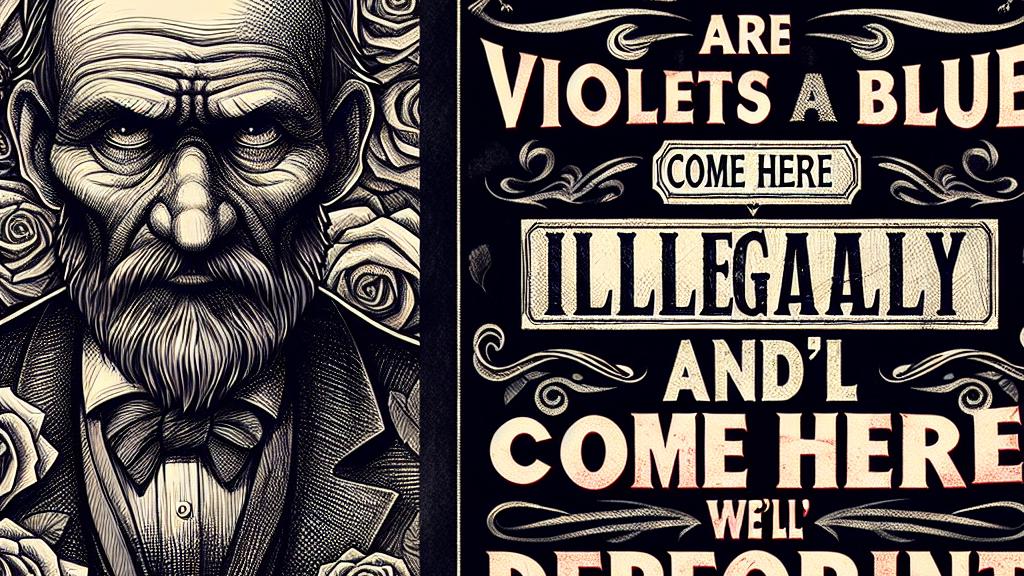Understanding a Controversial Valentine's Day Poem from the White House
Overview
- A deep dive into the White House's unexpected Valentine's Day message.
- Exploring the implications for immigration policy and societal views on migrants.
- Contrasting traditional expressions of love with a political stance.

A Stern Valentine's Message
This Valentine's Day, the usual charm associated with romance took a sharp turn in Washington, D.C. Traditionally, people send loving notes or gifts, but this year, the White House's message was anything but sweet. Instead of heartfelt sentiments, a strikingly stern card boldly proclaimed: "Roses are red, violets are blue. Come here illegally, and we'll deport you." The juxtaposition of playful imagery with a harsh instruction left many stunned. Such a declaration transforms a day meant for celebrating love into a chilling reminder of the country’s immigration crises, serving not merely as a greeting but as a clear message of deterrence.
Political Undertones and Messaging
Delving deeper, it's important to recognize that this poem isn't just an unusual greeting; it is a reflection of President Donald Trump's unwavering immigration policies. Here, we see a concerted effort to reshape public perception regarding undocumented immigrants. Trump has consistently promised to reduce their numbers, and using a day typically reserved for love to issue a warning illustrates a calculated political strategy. Consider this: while many Americans looked forward to celebrating affection, the administration pivoted to assert control and foster a culture of fear. It begs the question—how does our society balance compassion with enforcement, and is there room for empathy amid political maneuvering?
A Stark Contrast to Traditional Love
Valentine’s Day has historically been rooted in themes of love and connection, symbolizing the blossoming of relationships in the spirit of unity. Think back to the charming works of Geoffrey Chaucer, who depicted February 14th as a day when birds would come together to choose their mates—a poetic portrayal that illustrates the beauty of love’s emergence. In stark contrast, the White House's Valentine’s poem comes across as cold and uninviting, an unsettling reminder that compassion can often take a backseat to policy decisions. This stark difference raises compelling discussions around love—what does it mean for us today? Can a society thrive when kindness is overshadowed by harsh rhetoric? As we navigate through these complexities, it becomes vital to examine not only how we express love but also how we treat those who seek solace and safety in our borders.

Loading...